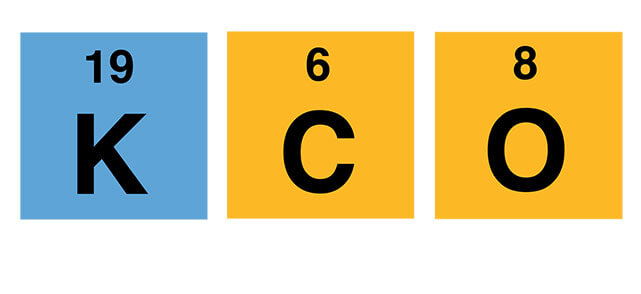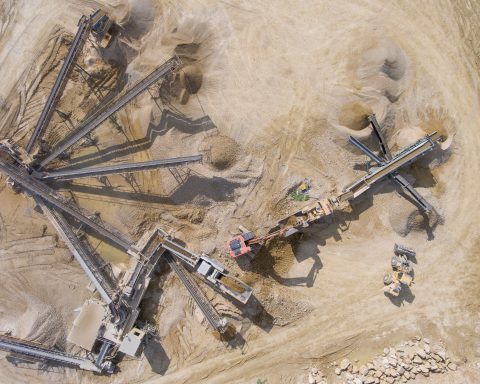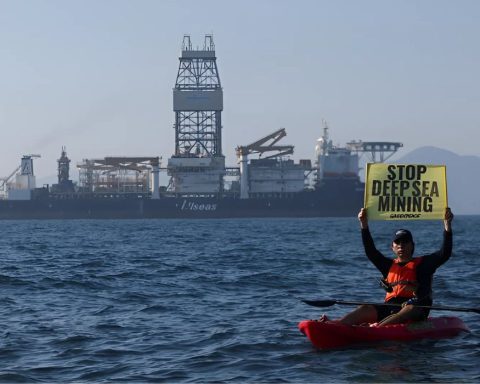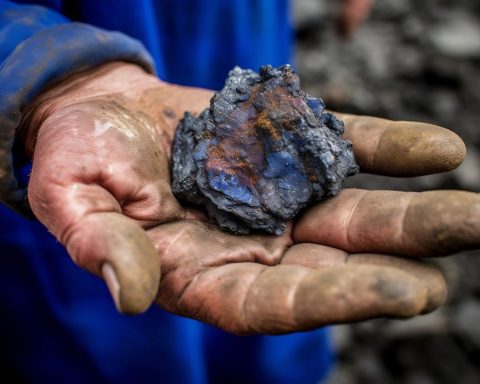War looms. This time next year, 100 million new mouths will go hungry, according to World Bank projections. That will push the number of starving people above one billion, a ten-digit tally of misery.
A global population of almost seven billion people requires lot of food, and a lot more of them, those with growing disposable incomes, are starting to be able to afford grain-intensive meat. Add the bio-fuels surge into the mix, and you can see why demand for potash, one of three key fertilizer nutrients, is shooting upwards.
Export cartels have helped to push the price of fertilizers, particularly potash,past the point many farmers can afford,and beyond what poor countries are able to subsidize. For India, total fertilizer subsidies tripled this year to US$22.5 billion (with almost $3 billion of that going toward cushioning potash prices), matching the country’s defence budget.
On April 21, 2008, PotashCorp, a Saskatchewan-based fertilizer company many Canadians had never thought twice about, rocketed to top spot on the Toronto Stock Exchange (TSX). While the company’s stock ranking on the TSX has slipped a few spots in recent months, CEO Bill Doyle is bullish about the future. In a December 2008 speech, Doyle told investors that by 2012 it is “feasible that rising prices and additional volumes could push our annual potash gross margin toward $25 billion.” For 2008, the company expects its gross margin of net potash sales to be 80 per cent. Margins like that can entice battered investors to stop licking their wounds and start licking their chops.
An OPEC on steroids
For some reason the Creator chose not to spread the potash wealth around, bestowing just a small handful of countries with any substantial endowments. PotashCorp happens to be sitting on the world’s biggest pile of potash (and a tonne of cash) in a market cornered by export cartels. Seven companies in just twelve countries produce 85 per cent of global potash stocks (with Canada, Belarus and Russia accounting for four-fifths of production), and 160 countries consume it. In contrast, OPEC’s 12 countries control a mere 37 per cent of oil flows. Add in PotashCorp’s thousand-plus year supplies and its 75-percent share of unused capacity, and it might be enough to make Saudi Sheiks trade in their Arabian horses for Saskatchewan Roughriders jerseys.
Times were not always so good for PotashCorp. Back in 1986, as a crown corporation of the Government of Saskatchewan, it lost $103 million. Potash prices trolled $45.36 per tonne (FOB mine) as producers duked it out in a price war. As Doyle laments, “you never hear from anyone complaining when prices are low.”
Nineteen-eighty-six was a wake-up call. The Saskatchewan government overhauled PotashCorp’s management, bringing in some American talent. Former executives of competitor IMC Global joined Potash as CEO (Charles E. Childers) and president of the sales arm (Bill Doyle).
On September 25, 1986, Doyle drafted an internal “Corporate Plan” that stated ending the price wars would require joint action: “It is not possible for a single producer to affect a turn-around; however, joint action by a group of producers or governments could achieve this.” Doyle swiftly “match[ed] supply to demand,” and over the next two years, potash prices spiked by 82 per cent.
Then communism collapsed, plunging fertilizer demand in the former Soviet Union, and bringing a glut of supply onto the market, which took most of the nineties to sort out via PotashCorp pulling back on production coupled with demand growth in other parts of the world.
In between then and now, PotashCorp has invested in beefing up production capacity as well as making strategic investments in China, Chile, Israel and Jordan. The North American industry has also consolidated from eight to three players, who export the bulk of their foreign production through Canpotex, an export cartel permitted under Section 45 (5) of the Canadian Competition Act.
In April of 2000, PotashCorp announced that they were rolling part of Russian potash magnate Dmitry Rybolovlev’s haul at Uralkali into the Canpotex export cartel. In addition to controlling Uralkali, Rybolovlev jointly owns 25 per cent of Russia’s other major potash producer, Silvinit.
In April of 2003, PotashCorp announced that the Uralkali was leaving Canpotex, with Doyle noting, “The good news is the global potash market has grown and Uralkali has gained valuable experience in the nuances of the offshore market.” Doyle later noted at a 2005 investor conference in New York that “the big jump in offshore prices came early in 2004 when Russian producers reached their production limits and became more focused on price.”
The Saskatchewan- Belarusian Axis
In 2005, Belarusian President Aleksander Lukashenko decreed the Belarusian Potash Company (BPC) to have the exclusive right to market Belarusian potash. Uralkali quickly signed on as a cofounder rolling its Russian production into BPC. Together, with Uralkali’s recently acquired appreciation that price matters more than volume, the two export cartels had the power to set potash prices at will.
In October of 2005, representatives from the world’s potash players gathered for a meeting. Bill Doyle (CEO, PotashCorp), Michael Wilson (CEO, Canpotex), and James Thompson (Executive VP, Mosaic Company) attended a meeting in Russia with their counterpart, Vladislov Baumgertner, CEO Uralkali, as well as representatives of Belarusian potash powerhouse, Belaruskali and Russian producer Silvinit. Although PotashCorp could not confirm to Corporate Knights if this meeting took place, their less discreet Russian colleagues have a press release on their web site marking the occasion.
Doyle describes the potash market dynamics metaphorically: “When temporary factors reduce customer buying, we take our foot off the gas rather than force production into a market that is not prepared to buy.” Uralkali takes a more literal approach: “Two major export associations [Canpotex and BPC] ensure a stable pricing environment.”
About the time that BPC was formed, prices starting spiking everywhere, especially in North America where they had lagged international prices. For the first time since 1987-88, the North American and international potash prices converged. Today, potash is a seller’s market. “We believe the tight potash market is allowing producers to raise prices at will,” Goldman Sachs analyst Edlian Rodriguez concluded in April 2008. Recent potash contracts in Southeast Asia have closed at $1,050 per tonne of potash, compared to $120 in 2003.
Take it or leave it
The days of producer price wars and undercutting your competitors have been replaced by a steely discipline and camaraderie, to the point where potash export cartels can say, “here is my inflated price. Take it or leave it”. This can make for pitched battles, but as long as one export cartel is confident the other will not undercut it, countries like India and China have nowhere else to go, so they have to swallow the price increases, or risk their people not having food to swallow.
With this type of export cartel discipline, as Doyle noted this December, potash prices have proved remarkably resilient in a down-market for commodities: “While prices for commodities in general have declined substantially in recent months, the same is not true for potash,” adding “for the first half of 2009, buyers have accepted increases of $200 per tonne, taking the price above $900 per tonne on a delivered basis—a new record.”
 The big potash producers know the trends and can plan supply accordingly. The International Fertilizer Industry Association keeps track of industry data projecting potential surpluses. The latest data published on their site says: “Derived potash supply/demand balance shows a potential surplus rising from 5.8 Mt K2O in 2008 to 6.4 Mt in 2009.”
The big potash producers know the trends and can plan supply accordingly. The International Fertilizer Industry Association keeps track of industry data projecting potential surpluses. The latest data published on their site says: “Derived potash supply/demand balance shows a potential surplus rising from 5.8 Mt K2O in 2008 to 6.4 Mt in 2009.”
This kind of information helps suppliers to adjust production for optimal prices, “rather than force production into a market that is not prepared to buy,” as Doyle puts it. This December, for instance, despite around the board predictions that potash needs are soaring, PotashCorp announced 940 miners would be laid off at three of its mines for two months in order to reduce production by two million tonnes, or 20 per cent, in 2009. Agrium Inc. followed up with 380 layoff notices to employees at its Vanscoy mine. Mosaic Co. soon followed suit issuing layoff notices to a total of 1,000 workers at two locations in Saskatchewan this January, saying that the company would reduce production by up to one million tonnes by the end of May 2009.
The reason potash production is being cut is not because there is no demand for it, but that buyers do not want to pay the prices the potash producers are demanding. In fairness to the potash producers, they claim they need these high prices to justify investments to increase production, which will avert an even more abrasive shock down the road. But as the company just wrestled free a huge provincial profit tax concession so that any production beyond 5.7 million tonnes in Saskatchewan (where they already have existing capacity of about 10 million tonnes) is taxed at a rate of 0, those potash prices might not need to be as high as their “black box” model says.
Down on the farm
For farmers, potash prices have spiked more than any other input they require to grow food. “When I was out west in Alberta, people were asking for a high level investigation into the spike in fertilizer prices,” says Ron Bonnett, Canadian Federation of Agriculture, 2nd Vice President. “I wouldn’t be surprised if it was at the top of the agenda for our annual meeting in February.”
Further afield in Brazil and Russia, governments appear to be taking matters into their own hands. Brazil’s government is considering nationalizing the country’s fertilizer deposits to help reduce farmers’ production costs. In March, the Russian antimonopoly regulators mandated Uralkali to slash domestic prices for potash, after battling over its pricing behaviour in court.
In response to potash prices shooting through the roof, in September and October of 2008, six complaints were filed in the US on behalf of potash buyers against producers, including Potash-Corp. Alleging a conspiracy to fix potash prices under Section 1 of the Sherman Antitrust Act, as well as various state antitrust laws, the plaintiffs are seeking unspecified treble damages, plus attorneys’ fees. PotashCorp denies the allegations.
Corporate Knights polled half a dozen analysts, most of whom have been briefed only by the company on the matter. They didn’t seem worried. “Even if it looks that way [price-fixing among potash producers],” the managing director of one Bay Street bond rating house said, “it is going to be hard to prove in court, unless a company is so dumb to have emails lying around.”
Trade 101: Do unto others as you would have them do unto you
Under The Canadian Competition Act, companies are permitted to form price-fixing cartels for export purposes as long as it doesn’t increase prices at home. The provision which allows this, Section 45(5), dates back to 1960 and was revised in 1986. Section 45(5) was not designed for a flat trading world where commodities are priced the same everywhere, or arbitrage makes it so. But if you are one of a handful of companies controlling a necessary and rare resource that the world needs to grow food, then this provision can be a path to riches leaving in its trail bumper crops of hunger.
For the past ten years, the Canadian Competition Bureau has pushed for the revision of The Competition Act in a number of areas, including Section 45, that provides cover for PotashCorp’s export cartel, Canpotex. These defences for export cartel activity are known as “beggar thy neighbour” defences. The Competition Bureau proposes a regime whereby any hard core cartel operating in Canada would be unlawful regardless of its anti-competitive effects or where they were aimed or felt.
 In a world where there was much less trans-border activity than now and where antitrust or competition laws were few and far between, permitting export cartels aimed only at your trading partners was viewed in a much different light than it is today. Over the past couple of decades there has been a proliferation of competition laws around the world, to the point where over 100 nations have them today. All of these laws recognize that cartels are generally wrong and harmful to anybody they affect. So regardless of any exemptions offered for Canadian export cartels, it is just a matter of time before other nascent competition regulatory bodies are able to turn on export cartels like Canpotex if they suspect price-fixing or output restrictions.
In a world where there was much less trans-border activity than now and where antitrust or competition laws were few and far between, permitting export cartels aimed only at your trading partners was viewed in a much different light than it is today. Over the past couple of decades there has been a proliferation of competition laws around the world, to the point where over 100 nations have them today. All of these laws recognize that cartels are generally wrong and harmful to anybody they affect. So regardless of any exemptions offered for Canadian export cartels, it is just a matter of time before other nascent competition regulatory bodies are able to turn on export cartels like Canpotex if they suspect price-fixing or output restrictions.
J. William Rowley QC, Chairman at McMillan LLP points out that Canada, compared with any other economy of its size, is more reliant on external trade. “That being the case,” he parlays, “we don’t want to do things that beggar our neighbours. And intellectually we disagree with cartels, because they hurt consumers.” The OECD agrees, calling export cartels “the most egregious violations of competition law,” as well as issuing reports detailing how hardcore cartels— cartels which price fix, bid rig, and restrict output—harm consumers in developing countries the most. Another report by the American Bar Association on antitrust law and NAFTA from 1994, suggests prohibiting hard core cartels that harm other NAFTA nations.
In June, L. “Red” Wilson, Chair of the Competition Policy Review Panel, completed his final government commissioned report reviewing Canada’s competition policy (“Compete to Win”). The report calls on the government to “repeal the existing conspiracy provisions and replace them with a per se criminal offence to address hardcore cartels [e.g. price fixing] and a civil provision to deal with other types of agreements between competitors that have anti-competitive effects.”
“From PotashCorp’s perspective, the difference in a per se regime is that it would almost certainly remove the export cartel exemption,” says Rowley. It appears that Prime Minister Stephen Harper agrees something needs to be done in this area. During the 2008 federal election, the Conservatives promised that they would implement some of Wilson’s recommendations—so the legal curtain behind which companies have been hiding may soon be lifted. Canpotex may have to urgently review its business model.
“We like potash best because it has the fewest competitive pressures and least government involvement,” Doyle told the Credit Suisse First Boston Chemical Conference in September 2008. Well, if Harper sticks to his word, there could soon be a lot more competition and government involvement in busting up price-fixing export cartels like Canpotex.
Crack. Can you hear that? That’s the sound of export cartels being broken up.










